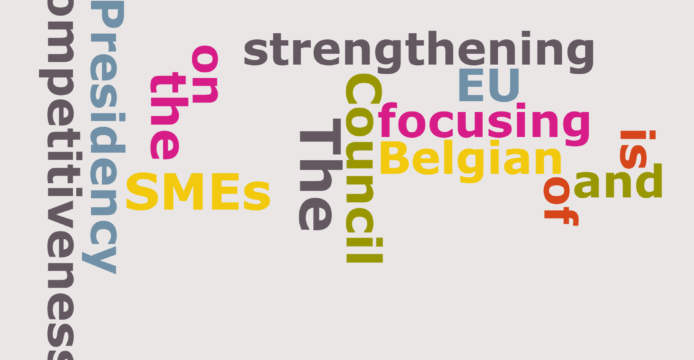As you know the Presidency of the EU Council, the highest body of the European Union, since it brings together the Heads of State and government of its 27 Member States, is exercised by the latter in a rotating way every six months. One of the most important task of the country that assumes the Presidency is to set priorities for the Union in the months to come. In order for these priorities to be followed up, the past and the coming Presidents are forming a “troika” and closely collaborate for a year and half. As of the first of this January, it is the time of Belgium to occupy this positions (the past one was Spain and the next one is Hungary). The period of Belgium’s Presidency is a very crucial one for the European Union because elections for the renewal of the members of the European Parliament for a five year term are scheduled to be held this coming June.
Amongst its main priorities, Belgium has underlined the need for strengthening the EU’s long-term competitiveness s and industrial policies. The Presidency thinks in fact that the EU must ensure a level playing field for businesses, especially SMEs, enabling them to compete fairly both within Europe and on the global stage. A coherent, predictable and simplified regulatory framework is key. The objective is for the EU to lead the way in creating a sustainable, innovative, and resilient digital ecosystem that empowers citizens and benefits businesses.
The Belgian Presidency will work to strengthen the EU’s internal market and industrial future and continue the work to complete the capital markets union and the energy union. Particular attention will be given to enhancing economic security, reducing harmful dependencies, and promoting technological leadership in critical sectors.
In that context, the Presidency aims to enhance the role of research, development, and innovation to become a frontrunner in developing and commercialising tailored solutions that boost key EU value chains’ resilience and competitiveness. It will work towards a labour market shaped for the future that enhances employment rates and stimulates growth. It will underscore the significance of both public and private investments. It will also underscore the significance of cohesion policy as an essential long-term investment instrument, as a catalyst for transformation and convergence, and as cement for the European Union. It will pay specific attention to our food production autonomy. Finally, the Presidency will focus on coherence between the EU’s internal and external policies.

